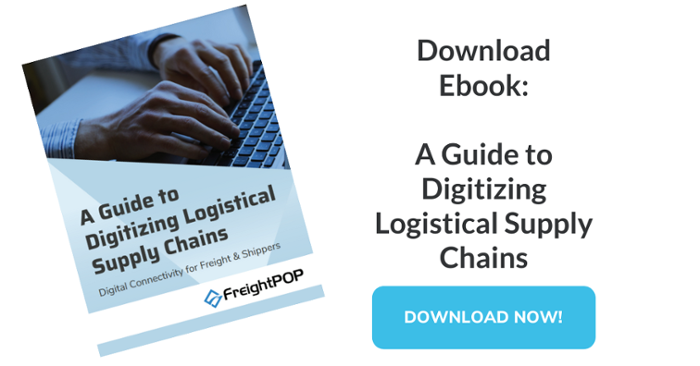NMFC Codes for Freight Classification
LTL freight classification can be very confusing with costly repercussions. It is crucial to your bottom line to understand the NMFC codes.
3 min read
FreightPOP : Mar 9, 2020

As Coronavirus impacts our airline, technology, manufacturing, and supply chain industries, it's time to figure out how to be agile. Extreme situations appear to be growing in frequency.
Coronavirus (COVID-19) has led to 80 blank (canceled) sailings in the first quarter, which is making a lot of shippers nervous and considering risk mitigation. Experts tell us that although warmer weather may see a reduction in Coronavirus cases, we could face a resurgence next cold and flu season. Researchers indicate a vaccine could still be a year or more away. So, how can we best prepare for these situations, whether it be Coronavirus or extreme weather?
USC Marshall held a webinar last week entitled Coronavirus and Its Disruption on Global Supply Chains. The panel was made up of supply chain experts advising on the current state we find ourselves in, what measures can be taken to mitigate issues, and what businesses that rely on shipping should do going forward.
As of this writing, the imports/exports in and out of China appear to be at a 4-6 week delay. It is important to note that there could be even longer delays on orders from countries that heavily rely on China for stock, like Vietnam.
Some tips to keep in mind are:
New Guide: 8 Strategies to Build a Disruption-Proof Supply Chain
When SARS hit, there was less of a disruption to supply chains because China was the #7 importer/exporter at the time. Now they are at #2. Having reliable alternatives for your eggs when that basket breaks can put your business at a severe advantage. In the USC webinar, it was noted that American companies are quarterly driven and do not traditionally plan well for risk. However, the new norm is disruption. Whether Coronavirus, civil unrest, or extreme weather events.
Things to keep in mind include:
Digitizing your supply chain will help you better manage a crisis. To better understand the technology available for businesses that ship parcel or freight, please see our guide Digital Connectivity for Freight and Shippers. 

LTL freight classification can be very confusing with costly repercussions. It is crucial to your bottom line to understand the NMFC codes.

NEW GUIDE: Learn how high-volume shippers can integrate logistics processes for profit and to save time, avoid unnecessary expenses, and delight...

In today’s world, data is more valuable than oil. Every department in your business stands to benefit from data collection insights. Data allows you...